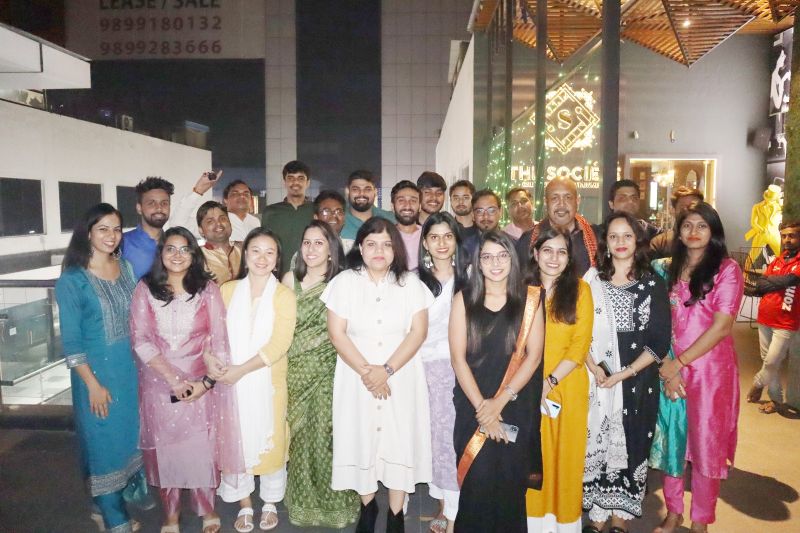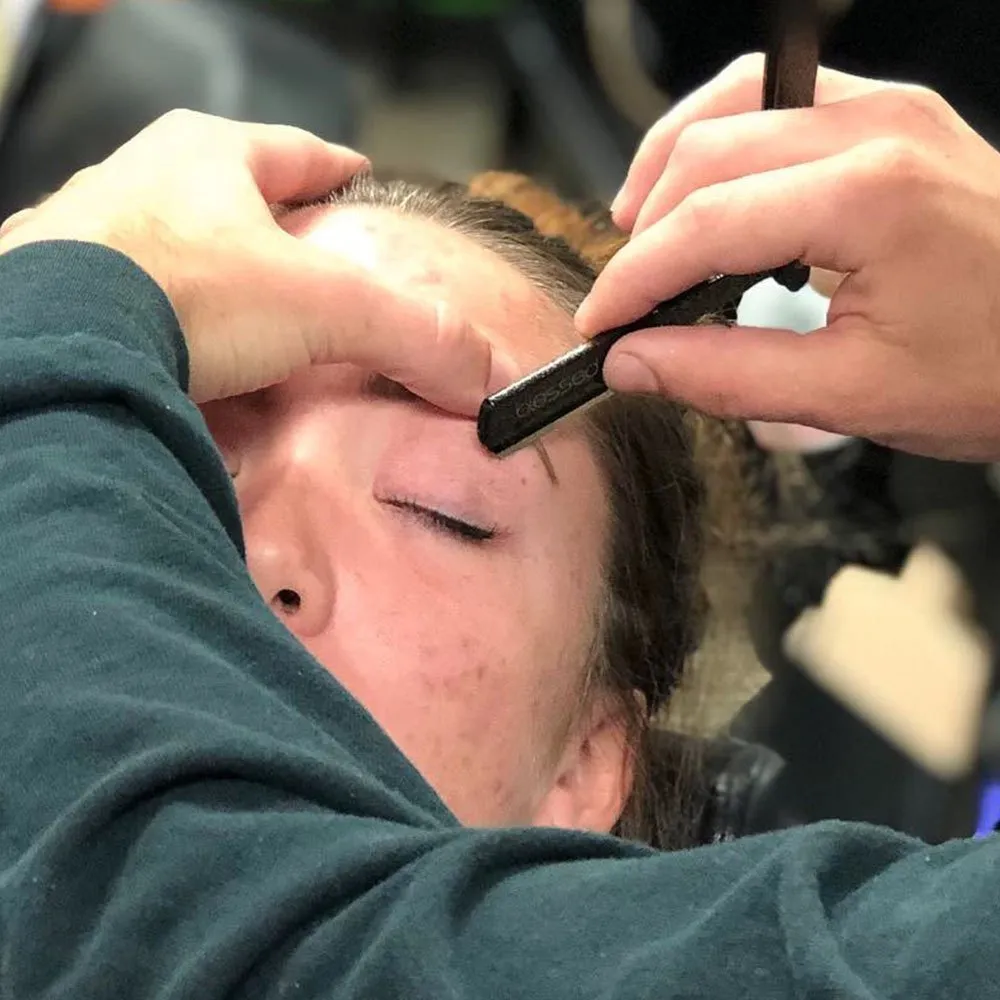Breaking The Silence: Dr. Shradha Malik On The Importance Of Mental Health Awareness

Table of Contents
The Stigma Surrounding Mental Health: A Major Barrier
A pervasive mental health stigma prevents countless individuals from seeking the help they desperately need. This stigma manifests in various ways, creating a significant barrier to mental wellness. The shame and fear associated with admitting mental health struggles often outweigh the desire for support and recovery.
- Discriminatory language: Casual use of terms like "crazy" or "insane" minimizes the severity of mental health conditions and reinforces negative stereotypes.
- Lack of understanding: Many people lack the knowledge and empathy to understand the complexities of mental illness, leading to judgment and misunderstanding.
- Societal pressure to hide struggles: The pressure to appear strong and successful can prevent individuals from openly discussing their mental health concerns, further isolating them.
Breaking this cycle of silence requires a concerted effort to reduce stigma and foster a culture of compassion and understanding. Open conversations, education, and empathy are key to creating a supportive environment where individuals feel comfortable seeking mental health help without fear of judgment.
Recognizing the Signs and Symptoms of Mental Health Issues
Recognizing the signs and symptoms of mental health issues is crucial for early intervention and improved outcomes. While self-diagnosis should be approached with caution, familiarity with common symptoms can encourage individuals to seek professional help.
- Anxiety symptoms: Excessive worry, restlessness, difficulty concentrating, irritability, sleep disturbances.
- Depression symptoms: Persistent sadness, loss of interest in activities, fatigue, changes in appetite or sleep, feelings of hopelessness.
- Other symptoms: Changes in mood, behavior, or personality; withdrawal from social activities; difficulty functioning in daily life.
Early intervention is vital. There are many resources available for a mental health self-assessment, but remember these should be used as a guide to initiating a conversation with a healthcare professional, not a replacement for professional diagnosis. Utilizing online questionnaires or checklists can offer some insight, but it's crucial to remember that a professional evaluation is essential for accurate diagnosis and treatment planning. The importance of early intervention in mental health cannot be overstated.
Dr. Malik's Perspective: Effective Strategies for Mental Wellness
Dr. Shradha Malik emphasizes a holistic approach to mental wellness strategies. Her expertise centers around empowering individuals to take control of their mental health through proactive strategies and seeking professional support when needed.
"Many effective strategies for improving mental well-being are readily available," says Dr. Malik. "These include simple yet powerful techniques like mindfulness and incorporating regular exercise into one's routine."
Dr. Malik advocates for several key techniques:
- Mindfulness techniques: Practicing mindfulness can help individuals to be more present in the moment, reducing stress and anxiety.
- Cognitive Behavioral Therapy (CBT): CBT is a therapeutic approach that helps individuals identify and change negative thought patterns and behaviors.
- Healthy lifestyle choices: Regular exercise, a balanced diet, sufficient sleep, and limiting substance use are crucial for mental wellness.
Dr. Malik's approach emphasizes the importance of self-compassion and seeking professional guidance when needed. This combination of self-help techniques and professional mental health therapy provides a robust pathway to improved mental health.
Seeking Professional Help and Available Resources
Seeking professional help for mental health concerns is a sign of strength, not weakness. Many resources are available to help individuals find qualified mental health professionals.
- Finding a therapist: Your primary care physician can provide referrals, or you can search online directories of therapists and counselors.
- Mental health resources: Numerous organizations offer support, information, and resources for individuals struggling with mental health issues.
- Mental health helplines: Confidential helplines provide immediate support and guidance. (Note: Include links to relevant helplines and resources here, specific to the target region.)
Don't hesitate to reach out for help. Your mental well-being is just as important as your physical health. Mental health professionals, including therapists, counselors, and psychiatrists, offer specialized care and support tailored to individual needs.
Promoting Mental Health Awareness in Your Community
Every individual has a role to play in promoting mental health awareness within their community. Taking action can lead to profound positive change.
- Start conversations: Openly discuss mental health with family, friends, and colleagues to reduce stigma and foster understanding.
- Support mental health organizations: Volunteer your time or donate to organizations dedicated to improving mental health services and support.
- Advocate for policy changes: Support legislation and policies that promote access to mental healthcare and reduce stigma.
- Join or start a mental health support group: Sharing experiences and connecting with others can be incredibly helpful.
By actively participating in mental health advocacy and supporting individuals in need, we can collectively create a more supportive and understanding community.
Conclusion: Breaking the Silence and Prioritizing Mental Health
Dr. Shradha Malik's insights underscore the critical need for mental health awareness. By understanding the signs and symptoms of mental health issues, challenging the stigma surrounding these challenges, and utilizing available resources, we can create a society that prioritizes mental well-being. Remember that seeking professional help is a sign of strength, and proactive steps towards self-care are essential. Let's join together in this vital mental health awareness campaign and break the silence. Share this article to further spread awareness and use #MentalHealthMatters #BreakTheSilence #MentalWellness. Prioritize your mental health support and encourage others to do the same. Let's work together to create a future where everyone feels supported and empowered to prioritize their mental health.

Featured Posts
-
 Tulsas Winter Weather Response 66 Salt Trucks Keep Roads Clear
May 02, 2025
Tulsas Winter Weather Response 66 Salt Trucks Keep Roads Clear
May 02, 2025 -
 Rust Movie Review A Critical Analysis Of The Films Production And Release
May 02, 2025
Rust Movie Review A Critical Analysis Of The Films Production And Release
May 02, 2025 -
 Buy Xrp Ripple Now Assessing The Risks And Rewards Under 3
May 02, 2025
Buy Xrp Ripple Now Assessing The Risks And Rewards Under 3
May 02, 2025 -
 Rugby Highlights Duponts Exceptional Display In Frances Win Over Italy
May 02, 2025
Rugby Highlights Duponts Exceptional Display In Frances Win Over Italy
May 02, 2025 -
 Men Shaving Eyelashes Reasons And Considerations
May 02, 2025
Men Shaving Eyelashes Reasons And Considerations
May 02, 2025
